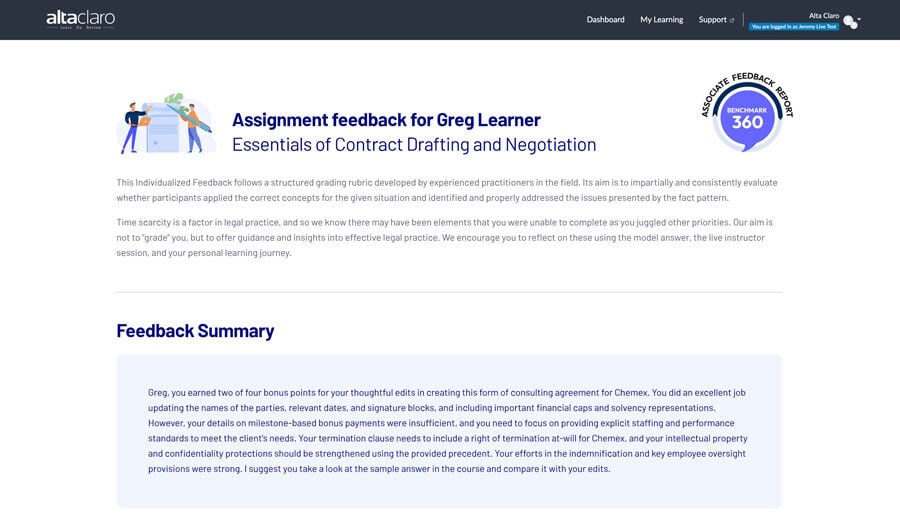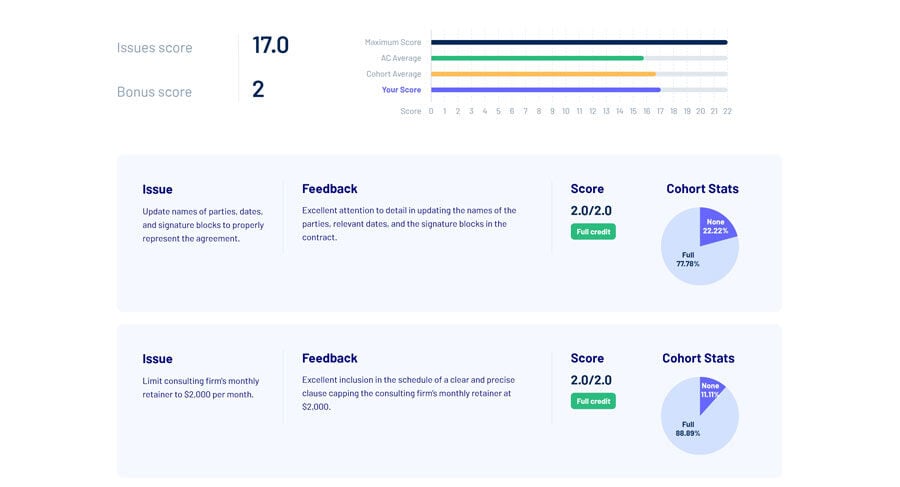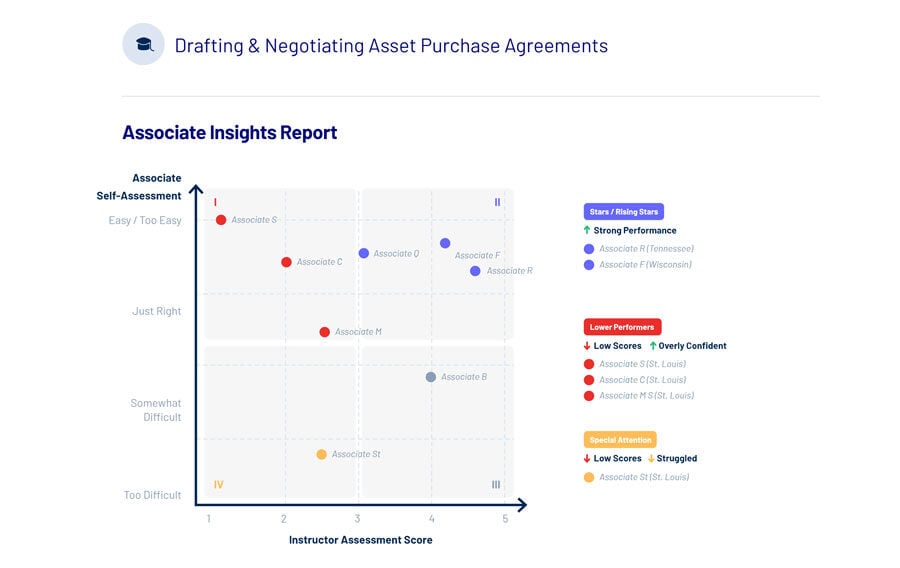This course is designed to introduce students to real estate transactions. The course starts by defining real estate transactions in general and identifying the parties involved. It then describes the different types of real estate transactions and identifies the key documents in each. Finally, the course identifies the essential roles attorneys play in real estate transactions and the remedies available to the parties when there is a problem with a real estate transaction.
Overview of Real Estate Transactions
Training courses associates and partners love and law firms need.
Upon completion of this course, participants will be able to:
- Identify the various types and structures of real estate transactions
- Understand the various parties involved in a real estate transaction and the respective concerns of the parties involved
- Recognize the types of documents and terminology used in real estate transactions
- Understand the role of the attorney in various real estate transactions
- Review and summarize a letter of intent
Key Topics:
- Introduction
- What is a real estate transaction?
- What are the primary motivations for clients to engage in real estate transactions?
- Who are the typical parties involved in real estate transactions?
- Who are the typical clients in real estate transactions?
- Most common types of real estate transactions
- Difference between Residential and Commercial
- Purchase and sale
- Lease
- Loan
- Construction
- Pre-development and Development
- Documents generally involved in real estate transactions
- Term Sheets/LOIs
- Purchase and sale documents
- Lease documents
- Loan documents
- Types of documents in other real estate transactions
- Construction agreement
- Pre-development and development agreements
- The roles of an attorney in the different real estate transactions
- Importance of real estate attorneys
- Role of the Buyer’s and the Seller’s counsel in a purchase and sale transaction
- Role of the Landlord’s and the Tenant’s counsel in a leasing transaction
- Role of the Lender’s and the Borrower’s counsel in a lending transaction
- Other situations where counsel may represent a real estate client
- What happens when real estate transactions go wrong?
- Short sales
- Forbearance
- Workouts
- Unexpected discoveries during due diligence
Supplemental Materials/Additional Resources:
- Sample purchase and sale agreement
- Sample special warranty deed
- Sample lease agreement
- Sample loan agreement
- Sample financial term sheet for retail purchase
- Sample closing binder index
- Sample due diligence checklist
Class Content Overview
Level: Basic-Foundational
Course Details
Instructors Who Practice What They Teach
Our vetted instructors are global practitioners with outstanding professional and educational qualifications and demonstrated achievement in their fields. All have 10+ years Big Law experience.
In addition to their accomplishments as practitioners, our instructors are also passionate about teaching. We carefully interview instructor candidates to assess personality, domain expertise and effectiveness in the classroom. Our instructors must maintain a 4.5 out of 5 rating from students.
Frequently Asked Questions:
What are the best training programs for law firm associates?
The best training programs for law firm associates combine essential legal knowledge with practical skill development. AltaClaro offers comprehensive training solutions that encompass various topics crucial for associates' success, ensuring they are well-equipped for their roles in a fast-paced legal environment.
How can legal departments enhance training for summer interns?
To enhance training for summer interns, legal departments can implement structured programs that include mentorship, workshops, and hands-on projects. AltaClaro's training modules can serve as an excellent foundation, providing interns with practical skills they can apply during their internship and beyond.
What innovative legal training solutions are available for law firms?
For law firms looking to innovate their training approaches, AltaClaro offers a range of cutting-edge solutions. Our platform features custom training programs, on-demand resources, and analytics tools that empower firms to deliver relevant and effective legal training.
Are there experiential learning courses for law professionals?
Yes, we provide experiential learning courses tailored for law professionals. Our training platform emphasizes real-world scenarios that allow participants to apply their knowledge in a practical setting, making the learning experience both engaging and relevant.
What online training options improve practical skills for lawyers?
At AltaClaro, we offer a variety of online training options designed to enhance practical skills for lawyers. From our immersive practice-driven training modules to interactive courses focusing on key areas like negotiation and litigation, there's something for everyone looking to advance their career.























